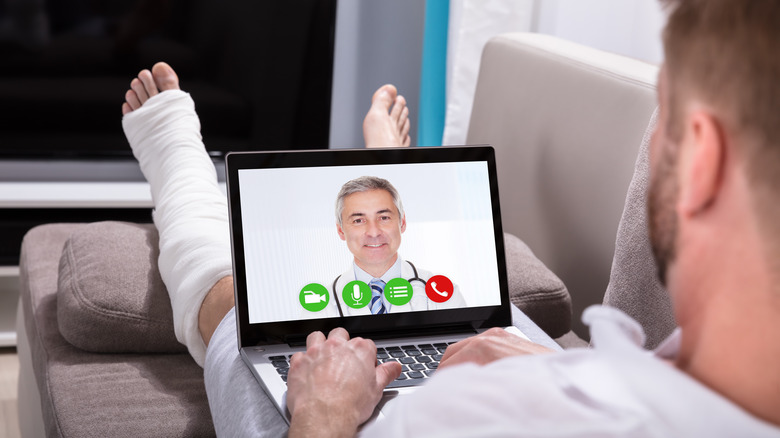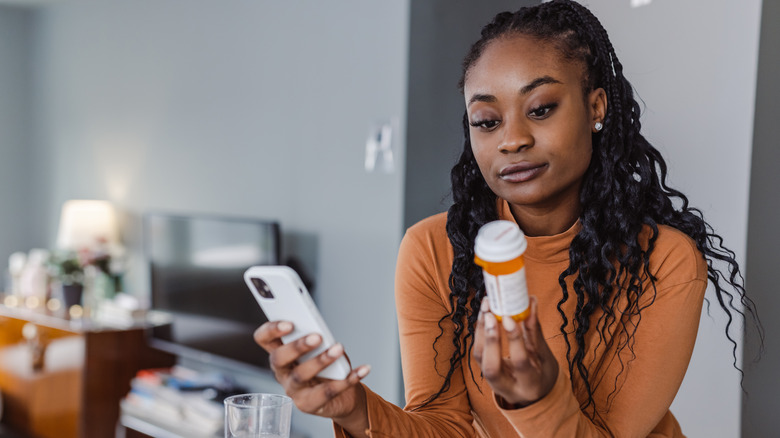5 Ways ChatGPT Could Have A Big Impact On The Healthcare Industry
The healthcare sector is constantly undergoing massive transformations, with new medical technologies popping up left, right, and center. If developed and utilized correctly, many of these revolutionary innovations can potentially change the landscape of the medical industry for the better. One such piece of tech with enormous potential is currently making waves and creating headlines worldwide, making its mark on industry after industry. Artificial Intelligence has already given way to a paradigm shift in several sectors, including education, art, entertainment, and health.
This charge is being led by one specific application of AI. AI chatbots have been around for a while, but the launch of ChatGPT in late 2022 put some gears into motion. A powerful Large Language Model (LLM) developed by OpenAI, ChatGPT has the ability to understand and process advanced natural languages and respond to queries with human-like answers based on the context.
With the rise of AI in healthcare and the implementation of ChatGPT in the medical sector, ethical usage of this technology will be the key. It would be necessary to have strict security and privacy measures in place to protect patient data. Getting the most out of using ChatGPT in healthcare while ensuring patient safety calls for a healthy partnership between the AI chatbot and human medical professionals. But with proper use and diligent oversight, ChatGPT can tremendously improve the quality of patient care, enhance people's access to healthcare, and pave the way to better health outcomes.
It can automate administrative activities in healthcare
Healthcare workers currently spend much of their time handling documentation and paperwork, which could have been spent focusing on patient care. Having to do excessive amounts of paperwork, in addition to the already straining activity of providing healthcare to patients, can leave medical workers at a very real risk of experiencing burnout. Exhaustion and mental stress can lead to an increased possibility of making mistakes, and the healthcare sector simply cannot afford to leave room for errors.
But by utilizing the capabilities of ChatGPT, some of the administrative workload can be automated, and the burden on health workers can be reduced. The chatbot can automate administrative tasks such as handling certain authorization documents, managing patient records, and supporting the writing and summarizing of clinical notes.
With proper oversight, letting ChatGPT handle these tasks would ensure high accuracy in the paperwork. Patient care and satisfaction would also be enhanced since medical professionals would have more time to tend to patients. Patients would spend less time waiting for care, and healthcare workers would get easier and quicker access to necessary patient information.
It can be used as a mental health support pillar
Years of ignoring the importance of mental health have created a culture where the subject is somewhat of a taboo topic. But now things are much better than they used to be, with the demand for mental health support growing each day. When it comes to looking after your mental health, having easy access to the necessary support and resources when needed is critical. With increasing awareness regarding the importance of mental health, the number of people who need help rises too. This calls for greater availability of mental health resources.
Here's when ChatGPT can come in. OpenAI's chatbot can be used to easily get help in looking after your emotional state. Its ability to make empathetic conversations will allow it to act as a compassionate listener. Its skill at offering evidence-based guidance can be used to advise on how to cope with stress and anxiety for people undergoing any kind of emotional distress.
In addition to helping people navigate their emotions, it can also be programmed to direct people to mental health resources and services like designated hotlines. Other ways it can contribute include encouraging users to meet licensed emotional counselors and reducing stigma regarding the topic by encouraging conversation.
It can be integrated into telemedicine platforms
Telemedicine refers to the use of telecommunication technologies to provide healthcare services remotely. The rise of telemedicine revolutionized the delivery of healthcare, providing patients with convenient access to medical services and easing the burden on healthcare systems.
Incorporating ChatGPT into telemedicine can have many positive implications for the medical sector in general. A powerful AI bot on a telemedicine platform would mean patients can get healthcare support 24/7. Individuals can direct common health-related queries to the chatbot and get guidance on managing symptoms. ChatGPT could also be used to schedule appointments with medical professionals and provide automated reminders to patients as required. It can also act as a translator in situations where the telemedicine provider and the patient don't speak the same language.
This application can potentially prove to be vital in remote, rural areas with limited availability of healthcare professionals and resources. ChatGPT can also be used to assess patients and determine whether a physical visit to a healthcare provider is necessary. Not only is this efficient, but this will also allow for prioritizing more urgent patients, potentially saving lives.
It can assist in the education and training of medical students
Another way in which ChatGPT can revolutionize the medical sector is by providing support to medical students for their educational activities. Continuous learning is a fundamental part of all medical professions, and ChatGPT can have a massive impact on medical education and training.
Medical students can utilize ChatGPT to find and peruse medical information and knowledge for their studies. With one simple query, the AI bot could find and provide them with access to an extensive database of research papers, guidelines, and other medical knowledge. In addition to students, this easy access to healthcare information can also tremendously help licensed medical practitioners by giving them the facilities to make more informed decisions. Complex issues and concepts could also be directed to ChatGPT for detailed clarifications.
Additionally, ChatGPT can potentially be used by students to obtain real-time feedback on research assignments or advice for a certain medical condition in a safe space.
It can act as a personalized health assistant
Every person has unique needs when it comes to their overall health and well-being. So having personalized care would play a vital role in managing and fulfilling those needs. For example, people suffering from chronic conditions require unique and constant healthcare.
This is another area ChatGPT can potentially shine at. By leveraging patient data and history, the chatbot can provide recommendations uniquely tailored to fit an individual patient's needs. It can be programmed to identify the areas that need adjustments when provided with an individual's lifestyle practices, like their nutritional and sleep habits. In addition, by giving it access to treatment plans and vital signs, ChatGPT could also be a source of personalized disease management guidance and ensure that you stick to your designated treatment.
If properly implemented and used, this can encourage patients to actively take part in caring for their well-being. ChatGPT in the form of a personal health assistant can help you learn how to prioritize self-care, which would lead to better health outcomes and maximize patient welfare.





